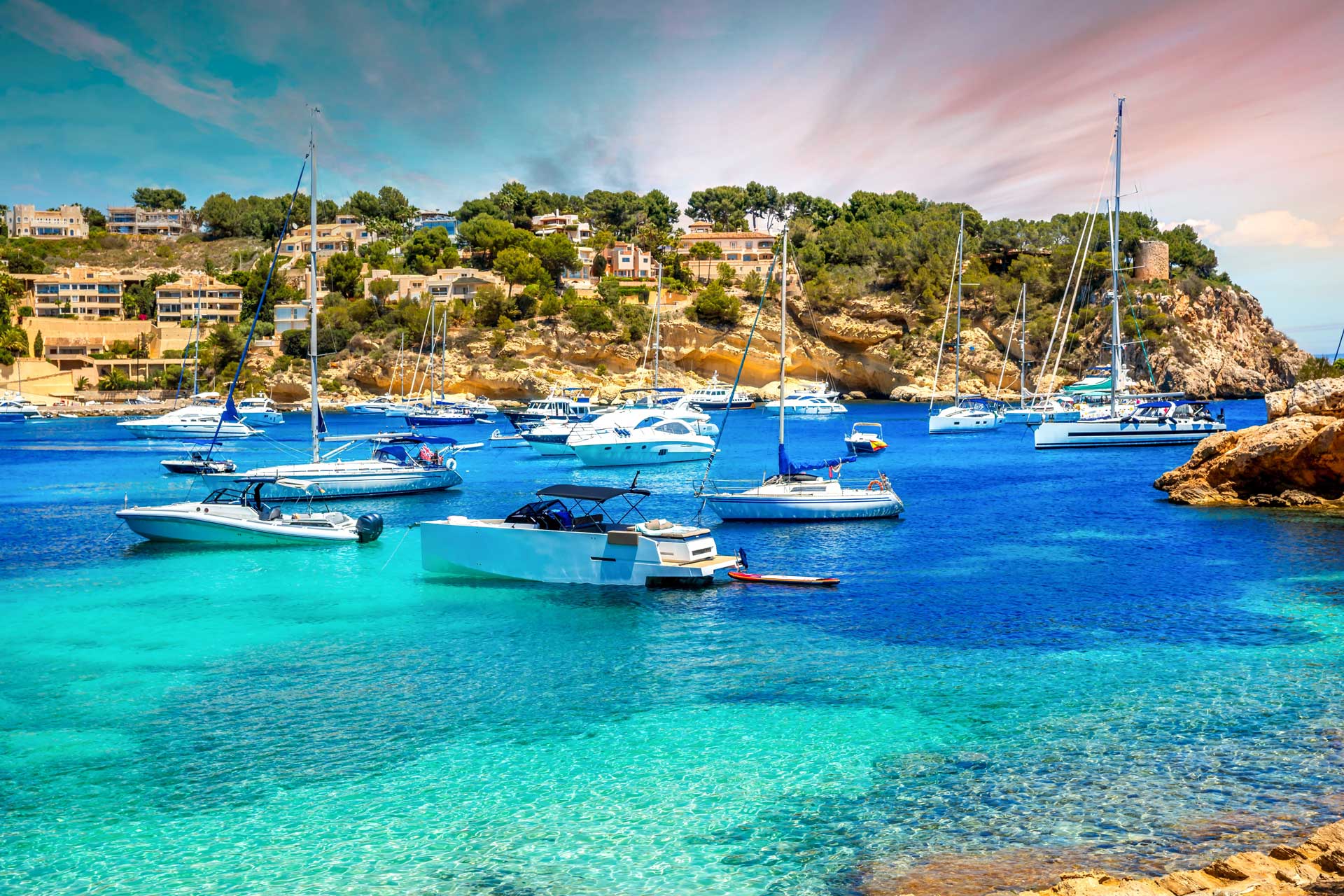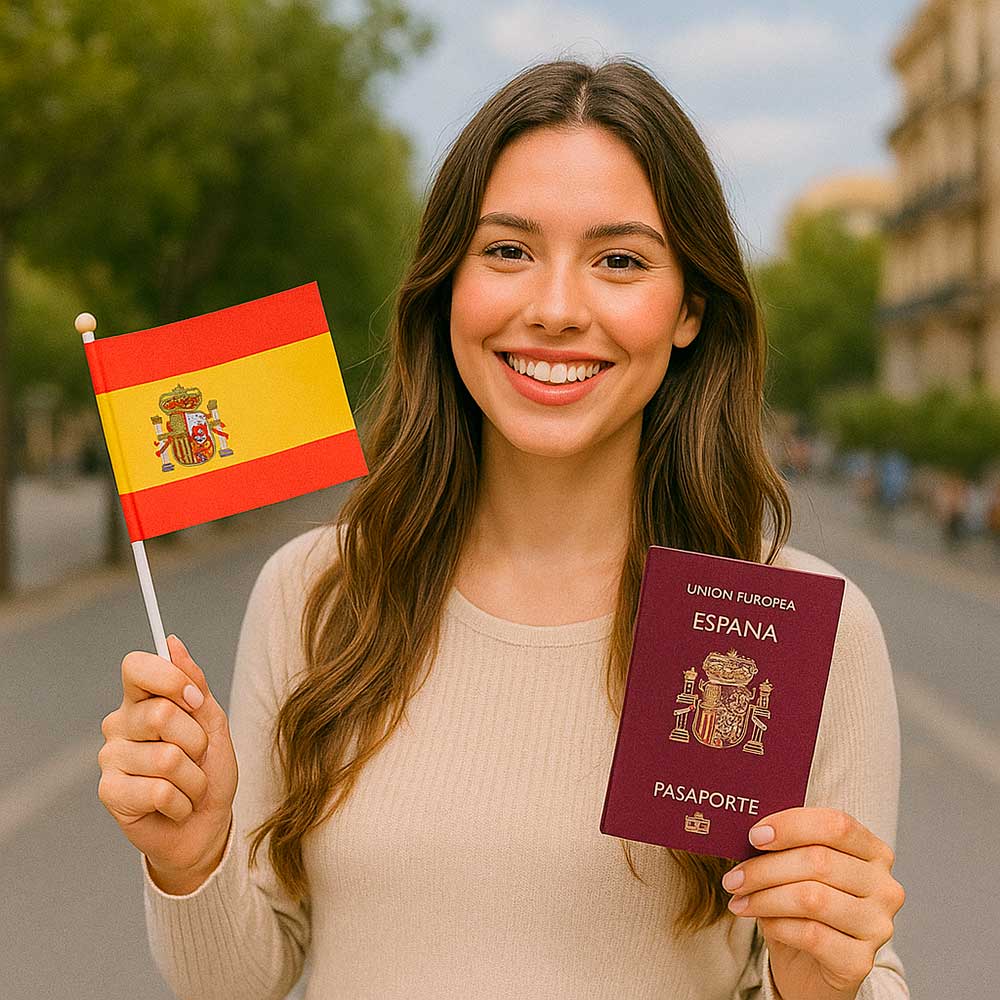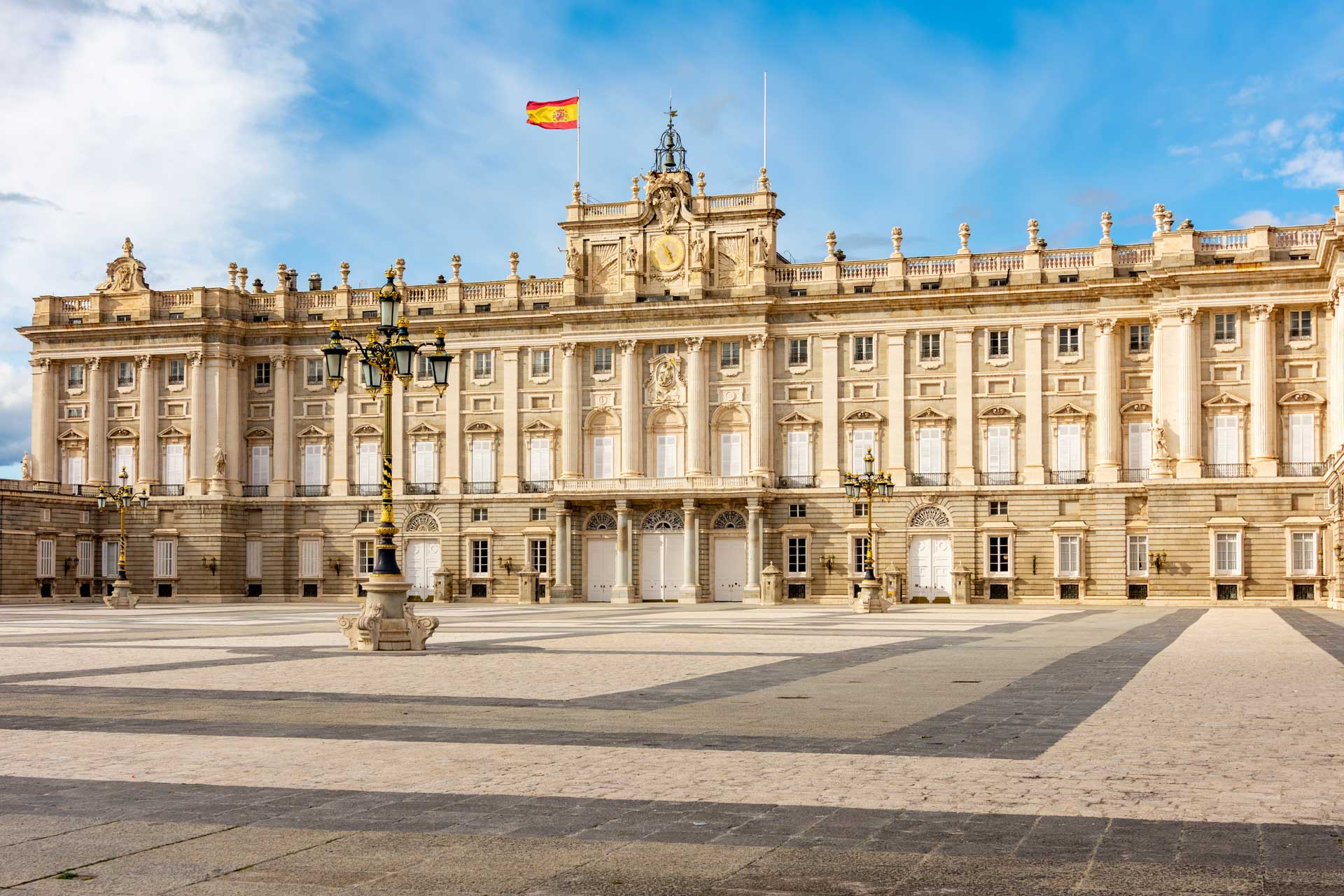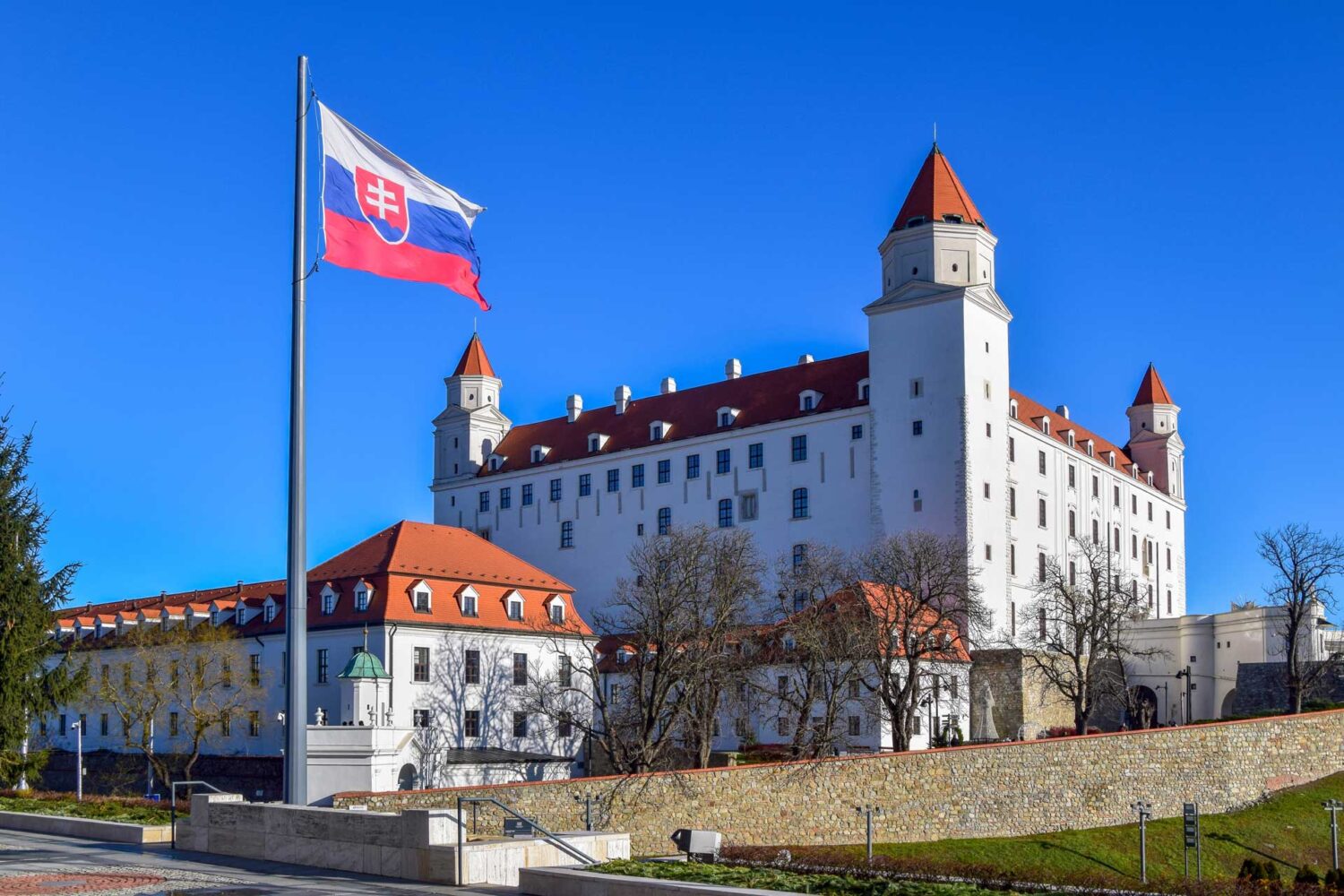Spanish citizenship is a status that gives a person all the rights of a subject of the Spanish kingdom and a citizen of the European Union. The number of immigrants wishing to obtain a Spanish passport grows every year – in 2024 alone, the number of naturalized foreigners increased by 5.1% compared to the previous year. So why is Spanish citizenship so popular? Firstly, it is a convenient “entry point” to the European Union: with a Spanish passport you become a citizen of the EU with all the ensuing privileges. Secondly, Spain itself is a comfortable country with a mild climate and a high standard of living. Having obtained a Spanish passport, you will be free to live and work not only in Spain, but also in any EU country.
Tip! Before starting the naturalization process in Spain, it is recommended to first analyze your possibilities and grounds for obtaining citizenship in other EU countries. Some applicants, for example, first obtain citizenship by repatriation (in Romania or Slovenia) in 4-12 months and then move to Spain on the basis of this status. This approach can greatly simplify the process, bypassing the long years of waiting for naturalization. Therefore, it is worth consulting with an immigration lawyer – an expert will help you find the best path to a European passport, taking into account your situation.
Advantages of Spanish citizenship
Spanish citizenship grants its holder a number of privileges and rights. Let us consider the main advantages of a Spanish passport:
- Freedom of movement and residence.
Spain is a member of the EU, so a Spanish passport gives the right to live in a stable developed country of Western Europe and, if desired, to move to any other EU country, as well as to EFTA states (for example, Switzerland, Norway) without any restrictions. In addition, Spaniards can visit more than 170 countries of the world without visas, including all Schengen states, Great Britain, Canada and even the USA (under the Visa Waiver Program). In fact, a Spanish passport opens up the whole world to you. - Right to work, do business and have social guarantees.
After obtaining citizenship, a foreigner has the right to work in Spain and other EU countries without special permits. You will be able to work in European companies, open your own business, use the European banking system and take loans on favorable terms. The state provides citizens with a wide social package: free school education, preferential higher education in prestigious European universities, medical care under a single insurance policy, the right to receive social benefits and pensions according to European standards. - High quality of life.
Spain is renowned for its mild climate (up to 300 days of sunshine a year) and hospitality. According to HSBC research, Spain is one of the top three countries in the world in terms of quality of life for expats. It has a relatively low cost of living compared to some other Western European countries – affordable housing, moderate prices for products and services. Security is high, infrastructure is well-developed and the pace of life is leisurely.
Of course, Spanish citizenship is not a solution of all problems. For example, those moving should be prepared to learn Spanish and to deal with some bureaucracy. However, the advantages clearly outweigh the disadvantages, so many immigrants seek to obtain a Spanish passport and take advantage of all its benefits.
Find out details about applying for an EU passport at a free consultation
Fill out the simple form and an immigration lawyer will contact you shortly
Ways of obtaining Spanish citizenship
Spanish law provides several legal grounds for acquiring citizenship. Depending on the situation, it is possible to obtain a Spanish passport almost immediately (for example, by birthright) or after many years of residence. Below we list the main ways of obtaining Spanish citizenship – from the most common to the most specific ones:
- Citizenship by descent (right of blood).
A child who has one or both parents who are Spanish citizens acquires citizenship automatically at birth (regardless of the place of birth). Children born in Spain to foreigners are also considered Spanish by descent if neither party can transfer their nationality to the child – for example, if the parents are stateless. In addition, foundlings found in Spain and minor children adopted by Spanish citizens are automatically granted citizenship by the authorities. - Citizenship by naturalization (through residence).
This is the most common way: the vast majority of foreigners become Spanish citizens after years of living in the country. The standard requirement is at least 10 years of legal continuous residence before applying. There are some situations where the required period of residence is reduced by law (preferential naturalization): for example, refugees can obtain citizenship after 5 years of residence.
Citizens of a number of countries historically linked to Spain (the so-called Ibero-American states, as well as Andorra, the Philippines, Equatorial Guinea and Portugal) are eligible to apply for citizenship after 2 years of residence. Ibero-American countries include almost all Latin American countries where Spanish or Portuguese is spoken (for example, Mexico, Argentina, Brazil, etc.) – for their citizens the period is shortened to two years, in addition, they are allowed to keep their first citizenship (more on this below).
The most simplified naturalization – after 1 year of residence – is provided for a number of special categories, including: foreigners born in Spain; spouses of Spanish citizens; widows/widowers of Spanish citizens; Spanish dependents (for example, children under guardianship); and foreigners whose parents are of Spanish origin. Such applicants only need to live in the country for 12 months, after which it is possible to apply for a passport (if other conditions are met). It should be noted that regardless of the grounds, the law on Spanish citizenship requires that the applicant must live legally (not as a tourist) and maintain continuity of residence. That is, years on a tourist visa or in an illegal status will not be counted. - Citizenship through marriage to a Spanish citizen.
Marriage to a Spanish citizen is one of the fastest and most reliable ways of naturalization. Officially, it is enough to live in a registered marriage for 1 year in Spain under the family residence permit, after which you can apply. This way is suitable for both legal spouses and those who have entered into a same-sex marriage (in Spain it is allowed). Important points: the marriage must not be fictitious, the spouses must really live together, and at the time of obtaining a passport the union must be valid – otherwise a refusal will follow. - Citizenship through investment (economic immigration).
It is impossible to buy Spanish citizenship directly for money. However, until recently there was a scheme “Golden Visa”: a foreigner who invested a large amount of money in the Spanish economy, first received a residence permit, then a permanent residence permit, and after 10 years could naturalize on general grounds. The minimum investment threshold was 500 000 € – for example, the purchase of real estate for this amount gave the right to a residence permit for the investor and his family. It was also possible to invest from 1 million € in the equity of Spanish companies or in a local bank or 2 million € in government bonds. After 5 years of residence, the investor could return the investment, retaining the status of residence permit, and after another 5 years – to apply for citizenship.
Important: since April 2025 Spain has suspended the acceptance of new applications for residence permits on investments. This means that it is now impossible to leave on a “golden visa”. However, if you are already living in Spain on the investor residence permit, the path to citizenship through investment remains the same – the main thing is to continue to comply with the terms of the program until you receive a passport. - Citizenship through kinship (family reunification).
In this category we can conditionally combine various cases where a foreigner obtains resident status through family ties with Spaniards, and then after a prescribed period of time – citizenship. For example, family reunification allows close relatives of Spanish residents (spouses, minor children, dependent parents) to come for permanent residence. But in itself the status of residence permit on reunification does not give privileges in naturalization – such residents must also live 10 years in the country before becoming subjects.
A special case can also be mentioned: if a foreigner is the child (or even grandchild) of a Spaniard by descent, he or she is entitled to a facilitated citizenship (often without a ten-year residency requirement). In recent years, Spain has adopted special laws on the repatriation of certain categories of descendants of its citizens. Thus, the descendants of Sephardic Jews expelled from Spain several centuries ago, could until 2019 obtain citizenship under a simplified procedure (without residence, but with proof of kinship and knowledge of the language). And in 2022, a temporary program was introduced for grandchildren of Spanish emigrants who were forced to leave the country during the civil war (the so-called Democratic Memory Law). These initiatives are designed for narrow groups of people, but if you are one of them, this could be a shortcut to a passport. - Citizenship for special merit (carta de naturaleza).
Spain reserves the right to grant citizenship at the discretion of the State to certain foreigners, without meeting the general requirements, if it considers that they deserve it for their contribution. Most often, these are celebrities, outstanding scientists, athletes, and major investors who have a special merit for Spain or have contributed to its prestige. The law allows such people to obtain citizenship by government decision (through a royal decree) on an exceptional basis.
As you can see, there are different ways to obtain Spanish citizenship. Each way has its own conditions and terms. For most immigrants, the reality is that first you need to move to the country on a visa or residence permit, live in good faith for several years, integrate into society – and only then apply for a passport. The only exceptions are in cases of Spanish relatives or marriage. Next, let’s look at how the citizenship procedure itself goes, what documents are required and how much time and money you have to spend.

Procedure for obtaining Spanish citizenship
There are several steps in the process of applying for Spanish citizenship. If you already meet one of the requirements (for example, you have lived for the required number of years or have been married for a year), you can start collecting documents. In general terms, the order is as follows:
- Obtaining a residence permit.
To begin with, it is necessary to immigrate legally to Spain and obtain a residency status – usually a temporary residence permit. The basis can be work, study, business, family reunification, etc. (depending on your situation). Without a residence permit, living in the country does not count as a basis for citizenship, so the first step is to legalize. Some people come on a national D visa, then get a resident card. If you are just planning to move, it is worth consulting with experts about which type of residence permit is best for you. - Living in the country and obtaining a permanent residence.
Then follows the stage of actually living in Spain. It is necessary to live in the country continuously for a fixed period of time (for example, 10 years for ordinary naturalization, or less – under preferential conditions). Continuously means that you do not leave Spain for more than 3-6 months a year (better – no more than 183 days annually). It is important to comply with the conditions of your residence permit – to work if you have a work visa; to study if you have a student visa; to have sufficient income if you have a residence permit without the right to work, etc. After 5 years, it is usually necessary to extend the status to permanent resident. Permanent residency is granted for 5 years and allows you to live in Spain with virtually no restrictions. After another 5 years of permanent residence, you will reach the total ten years of residence, after which you can apply for citizenship. - Document preparation.
The standard list of documents includes: internal and foreign passports (with copies of all pages); a residence card (residence permit/permanent residence) as proof of your legal status; a birth certificate (yours, as well as birth certificates of children and marriage certificate, if applicable); certificates of criminal record from all countries of which you are a citizen and where you have resided for a significant period of time. A completed application form will also be required. If the basis is marriage, a marriage certificate must be attached; if by descent, evidence of Spanish ancestry; if by asylum, documentation of refugee status, etc.
All documents issued outside of Spain must be translated into Spanish and notarized, and important official papers must be apostilled. The translation must be done by a sworn translator or certified by a consulate. Please note that some documents (for example, requesting a criminal record certificate from your home country) may take time to prepare, so it is better to take care of this well in advance. - Passing the compulsory exams.
Most foreign applicants need to prove their integration into Spanish society through two tests. The first is the DELE language test at level A2 or above (Spanish language proficiency). The second is the CCSE test (Spanish Constitution, Culture and Society), which tests your knowledge of the country’s structure, history, laws and traditions. Both exams are administered by the Instituto Cervantes. The cost of the exams in 2025 — about 85 € for CCSE and ≈130 € for DELE A2.
Exempted from the exams: citizens of countries where Spanish is an official language (they do not need DELE); people with proven disabilities, the elderly over a certain age, and children – they can be exempted from the test. If you have studied in Spain and have a local certificate/diploma, you will not need a language test. As a rule, it is better to prepare for the tests in advance – there are open databases of CCSE questions, courses and manuals. Exam results are valid for several months (CCSE – 4 years, DELE – indefinitely). You can apply for citizenship with the exams already passed, or you can apply first and take the tests later – but then no decision on your case will be made until you submit the certificates. - Submission of the application for citizenship.
The request for naturalization is submitted directly to the Spanish Ministry of Justice. This can now be done online through the Ministry’s e-portal (the preferred method) or in person at the registry office (for example, through the registry office of the municipality or through a consulate if you are filing from abroad). Online filing requires an electronic signature, so many people seek legal counsel for filing. A state fee is charged when filing: for 2025, the fee €104.05 (payable on form model 790-code 026, receipt attached to the file).
There are fee discounts for some applicants – for example, members of large families pay 50%. If you do not pay the fee, the application will not be accepted for consideration. At the time of submission, you provide all the documents you have collected, their copies, translations, payment receipts, examination certificates, etc. After registration, you will be given or sent an Expediente number, which you can then use to track the status of your case on the MoJ website. - Examination and awaiting decision.
The dossier is sent to the competent authorities for review. While your application is being considered, the Spanish services may examine your background in detail: request information from the police, check your tax payments, even conduct an interview (although nowadays personal interviews are rarely conducted during naturalization). Officially, the law gives ~1 year to consider the application for citizenship. In practice, the process is often delayed. If more than 12 months have passed since the application was submitted and no response has been received, the law considers it a “silent refusal” – that is, you have the right to appeal to the administrative court. However, in reality, most applicants prefer to simply wait, and after some time (most often within 1 to 3 years) receive a favorable decision. Often the length of time depends on the workload of the offices: for example, marriage applications may take longer than average to process.
During the waiting period it is important to comply with the law: if you commit a serious offense or, say, cease to comply with the requirements for residence in Spain, then you are sure to be denied citizenship. Reasons for refusal are also insufficient integration (poor language skills, lack of social contacts), non-payment of taxes, providing false information in the application form. In case of refusal, you will receive a reasoned notification and can appeal against it through the court within a month. But it is better not to get to this point, and initially approach all the requirements responsibly. - Taking the oath of office and obtaining a passport.
If your application is approved, the final step is to take the oath of allegiance to the King and the Spanish Constitution. You will be invited to the nearest Registro Civil (civil registry) office for this ceremony. It is usually required that you bring original documents, attend in person and recite the official oath. At the same time, if required, you will sign a renunciation of your previous citizenship (except where dual citizenship is allowed – see below). After taking the oath, you will be issued with a certificate of naturalization, on the basis of which you can obtain a Spanish passport and a National Identification Number (DNI). The passport is issued by the police, as with all citizens, and is usually ready within a few weeks. From that moment on, you are a full-fledged Spanish citizen with all the rights and obligations of a Spanish citizen.
As you can see, the path is not quick. In the best case (for example, marriage) it takes about 2-3 years: a year of residence + 1-2 years of waiting for a decision and paperwork. In the general case, the process can take 10-12 years or more (taking into account residence and bureaucratic delays). Nevertheless, thousands of immigrants every year go through it to the end and become Spaniards.
Check your chances of getting an EU passport through a simplified procedurе
Sign up for a free consultation to learn more from the experts at Mycitizenagency as soon as possible
Requirements for obtaining Spanish citizenship
Now let us look in detail at the main conditions and requirements that a candidate for citizenship must meet, as well as restrictions that are important to know about in advance. Spain, like any other country, has its own criteria for naturalization. Let us list the key points:
- Legal residence and continuity of residence.
As already mentioned, the applicant is required to reside in Spain legally for a fixed period of time. This means having a valid residence permit or permanent residence permit for all these years. Temporary departures are allowed, but with restrictions (usually no more than 6 months per year) – otherwise the period of residence may be interrupted. If you are planning a long trip abroad in the period before filing, it is better to consult whether it will affect your naturalization. - No legal problems.
You must not have a criminal record or serious offenses either in Spain or in your home country by the time of submission. An official certificate of no criminal record will be required. Spain may refuse if it considers the applicant to be socially dangerous or to have repeatedly violated laws (for example, deportations, serious offenses). Minor administrative fines (say, for traffic offenses) usually do not affect, but an unexpunged criminal record is almost a guaranteed rejection. - Integration and language skills.
The state assesses how well you have integrated into Spanish society. Integration means proficiency in Spanish (at least at the basic A2 level), understanding of the local culture and values, and having ties to Spain. This is tested through the aforementioned DELE and CCSE exams. In addition, the official may also consider other factors: whether you are employed, pay taxes, have real estate, family, participation in public life. All of these indirectly confirm your connection to the country. - Financial solvency and taxes.
Although you do not need to have a large capital for naturalization, your financial stability is indirectly assessed. You need to have a place of residence, income or savings sufficient for living (not to be dependent on the state). Usually at the stage of residence permit the level of income is checked – for example, for financially independent persons requires an income of at least 4 IPREM (~2400 € per month for 2025). Paying taxes is a sacred duty: if it turns out that you evaded taxes in Spain, it is a reason to deny citizenship. Therefore, comply with tax laws and keep proof (declarations, property tax payments, etc.). - Loyalty and no threat to national security.
The applicant must respect the Spanish constitutional order. If you have been involved in extremist organizations or have called for violence, this will come to light during the verification process and will almost certainly lead to the rejection of the application. You will be required to swear an oath of allegiance to Spain and its laws – be prepared to fulfill it sincerely. - Renunciation of previous citizenship (in most cases).
Spain imposes a requirement: when naturalizing, a foreigner must renounce his/her previous citizenship (sign a relevant statement). This rule is due to the fact that the country does not officially recognize dual citizenship with many countries (more about this in the next section). - Documents and their legalization.
The Ministry of Justice requires that all foreign documents must be properly executed: with an apostille (or consular legalization) and a Spanish translation. The whole package of documents must be up to date: make sure that everything is up to date at the time of submission, otherwise the documents will have to be redone. - Special conditions for certain grounds.
In addition to the general requirements, there are specific conditions for different categories. For example, for marriage – reality and legality, registration of the relationship in the Spanish registry, joint residence. For citizenship by descent – proof of kinship: birth certificates of Spanish parents, consular records, etc. For refugees – availability of refugio status, proof of persecution in the home country. For investors – fulfillment of all conditions of the investment program (retention of investments for the required period of time, extension of residence permit in time).
To summarize: a candidate for Spanish citizenship must be a law-abiding, integrated resident who has fulfilled the residency requirement and is ready to become a full member of society. If you meet all the requirements, you can safely prepare your application. Otherwise, it is wise to first address any gaps (for example, improve your language skills, build up your residency record, etc.) to avoid being rejected.
Find out how to obtain citizenship faster
Terms and cost of obtaining citizenship
Potential immigrants, of course, are interested in: how long to wait for a Spanish passport and how much does it cost? Costs and timeframes can vary considerably depending on the chosen path and individual circumstances. Let us consider the main points.
Terms
As we have already described in detail, the minimum period of residence before applying for citizenship is 1 year (for preferential categories) and 10 years – for most applicants for naturalization. Exceptions: 2 years for natives of Latin American countries, Andorra, Philippines, Ecu.Guinea, Portugal; 5 years for refugees; special cases by descent – sometimes with no residency requirements at all (for example, a child of a Spaniard is automatically a citizen). Application processing time after submission is officially ~12 months, but in fact often 1.5-2 years, and sometimes longer. In some autonomies of Spain things move faster, in others slower – it’s hard to predict. On average, if you have a standard case, orient that from the moment of filing to receiving a response will take about 1-2 years. With marriage or other simplified grounds sometimes even longer (due to the influx of applications in this category).
After approval, it will take another couple of months for the swearing-in and issuance of documents. Thus, in total from the day of moving to Spain to the day of handing over the passport passes: on marriage ~2-4 years, on naturalization ~11-13 years, on investments ~10-12 years, on origin – almost immediately, on other individual cases – from 1 to 5 years usually. Of course, if you already have EU citizenship (for example, of another country), you can live and work in Spain immediately and apply for citizenship after 10 years – this is sometimes seen as an alternative acceleration strategy. But there are no direct “automatic” ways to become a Spanish citizen quickly – you need either time or special grounds.
Cost
The official cost of the procedure is relatively low, but there are associated costs. Let us list the main items of expenses when obtaining Spanish citizenship:
- State fee for submission. To be paid when filing online or when recording the deed in the registry. Now it is about 104 €. This amount is mandatory – the application will not be processed without a receipt. For some categories the payment is reduced by 50% (benefits for large families, etc.).
- Exams. Preparing for and taking the CCSE and DELE is also a costly part. It costs 85 € to register for the CCSE and about 130 € for the DELE A2 level exam. These fees are paid to the Instituto Cervantes when you register for the exams. If you don’t pass the first time, a second attempt will require a new fee. Plus, you may need courses or study materials to prepare (this is optional: you can also prepare on your own using free sources).
- Translations and apostilles. Foreign documents (certificates, statements) require translation by a sworn translator. The price varies depending on the language and the amount of text – on average 40-60 € per document. Apostille in most countries is free of charge or for a symbolic fee, but if you apply through a notary, there may also be costs. Often a package of documents includes 5-10 papers – budget several hundred euros for their execution.
- Services of lawyers/agencies (optional). If you engage a lawyer or firm to handle your case, the total price of obtaining Spanish citizenship will increase by the cost of their services. For example, some companies offer turnkey support for a fixed amount. This is not a mandatory expense, but for some people it is justified. On your own, the costs mainly consist of state fees, exams and translations.
- Other minor expenses. These can include postage or courier costs (if you apply through the consulate, sometimes something is sent), travel to another city to take the oath (if you live outside your place of residence), etc. They are usually insignificant. Also, after obtaining citizenship you have to pay for the production of the passport and ID-card – it’s about 30 € in total, and additionally cost of taking a photo.
Thus, the registration of Spanish citizenship costs the candidate approximately 200-400 euros when self-filing, not counting personal time and effort. If you use paid legal assistance, the budget will increase accordingly to the agency’s tariffs.

How to get dual citizenship in Spain?
The issue of dual citizenship with Spain is very important to many immigrants. Spanish legislation is quite strict in this respect, but there are nuances as well.
Official position: According to the Spanish Civil Code, a naturalizing foreigner is obliged to renounce his previous nationality (except in cases of special arrangements). That is, when taking the oath, the new citizen signs an undertaking to renounce the previous nationality. The very fact of renunciation is not 100% controlled by the Spanish authorities – the law does not require you to provide a certificate that you actually lost your first citizenship. But legally it is considered that after such a declaration you are only a citizen of Spain. Moreover, the countries do not notify each other about the citizenship issued. Therefore, in practice, many people, having obtained a Spanish passport, continue to secretly remain citizens of their country (if that country does not automatically terminate citizenship when acquiring another). However, Spain does not officially recognize a second passport, unless it is a country with which there is a bilateral agreement.
Exceptions – with whom Spain recognizes dual citizenship. Spain has dual citizenship treaties with about 25 countries. These include almost all Latin American countries (speaking Spanish or Portuguese), as well as Portugal, Andorra, the Philippines, Equatorial Guinea. More recently, France has been added to this list (since 2022, an agreement on dual citizenship between France and Spain has been in force). Citizens of these countries, naturalizing in Spain, can keep their first passport without any problems. And vice versa, Spaniards of Spanish origin, obtaining citizenship of these countries, also do not lose their Spanish citizenship (they only need to notify the Spanish authorities of their desire to keep it). For native-born Spaniards in general, the law is more lenient: they can have a second citizenship if they declare their intention to keep their Spanish citizenship within 3 years after acquiring another one.
Let`s summarize: dual citizenship in Spain is only allowed for a limited number of countries. It is not allowed with most other countries, so you will have to sign a renunciation of your former passport. However, the actual presence of two passports in some cases is possible, although it is not recognized by law. When deciding whether to naturalize, be sure to weigh this point. If it is critical for you to retain your first citizenship, it may be worth considering other options (for example, obtaining a residence permit in Spain, without reaching citizenship, or obtaining citizenship of a country that recognizes dual citizenship).
Becoming a Spanish citizen is a complex but achievable process that opens the door to a new life. We have looked at who is eligible for a Spanish passport, what paths lead to it, how much time and money you will have to invest, and what opportunities you will gain by becoming a Spanish citizen. Obviously, the quick and easy path is only available to a few (those with direct Spanish roots or a Spanish spouse). Most immigrants will need patience and perseverance: years of work, integration and waiting for the authorities to decide. But the reward is worth it – you get one of the strongest citizenships in the world, with all the benefits of European life, security and freedom of movement.
Unless you have “preferential” grounds, it is better to think strategically about citizenship. You can start with a residence permit in Spain (through work, study, business or other means) and work your way up to a passport. Or you can first get an “easier” citizenship of another EU country (some of Spain’s neighbors offer simplified repatriation programs that allow you to obtain citizenship in 4-12 months), and then, as an EU citizen, to settle in Spain. Each case is different. If you are determined, start by assessing your chances and preparing a plan. Gather as much information as you can and, if necessary, enlist the support of experts.
Frequently Asked Questions about Spanish Citizenship
We have compiled answers to the most common questions about obtaining Spanish citizenship. If you did not find the information you were looking for or want to learn more about the requirements, timelines, and benefits of a Spanish passport, contact us for a free consultation.

No. Denial of citizenship does not affect your residency status. You can continue to live under a residence permit or a permanent residence permit as before and reapply later, having corrected the remarks. However, in case of serious violations (for example, falsification of documents), the residence permit can also be revoked.
No. If you have a Spanish educational certificate (ESO, Bachillerato, university), you are exempt from the DELE A2 exam. However, you still need to take the CCSE (Constitution and Culture Test) if you are not on the exempt list.
No. Naturalization requires continuous legal residence. Even a short gap in status (for example, an expired residence permit of at least 1 day) turns back the term to zero. You will have to start counting again from the moment you regain residency.
In exceptional cases, yes. For example, descendants of Spaniards or persons eligible for restoration may apply through the consulate. However, standard naturalization (through residence) requires residency in Spain, and it is virtually impossible to apply outside the country.
No, the length of residence and the procedure for obtaining citizenship are the same throughout Spain. However, in some regions (for example, Madrid or Navarra) applications are processed faster due to better digitalization or less busy courts. This may reduce bureaucratic delays but does not affect the overall naturalization timeline.
Yes. Puerto Ricans are considered Ibero-American nationals, so they may apply for Spanish citizenship after 2 years of legal residence in Spain, instead of the standard 10. They also must hold valid residence, show integration (language and cultural knowledge), have a clean criminal record, and formally apply through the Spanish authorities.
The standard residency requirement is 10 years. It is reduced to 5 years for refugees, 2 years for nationals of Ibero-American countries (including Latin America, Andorra, Philippines, Equatorial Guinea, Portugal), and 1 year in certain cases such as marriage to a Spaniard or birth in Spain.




